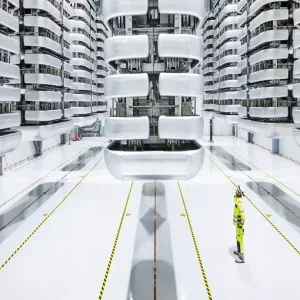 The scientists have found an electrochemical process where tiny spikes of carbon and copper are used to convert carbon dioxide into ethanol.
The scientists have found an electrochemical process where tiny spikes of carbon and copper are used to convert carbon dioxide into ethanol.
The team employed catalysts comprising of carbon, copper and nitrogen along with voltage which triggered chemical reaction that essentially reverses combustion process.
Carbon dioxide dissolved in water turned into ethanol during the reaction process. Apart from this, the team’s new breakthrough also registered an efficiency of 63% of conversion.
ORNL scientists and lead author of the study, Adam Rondinone said: “We’re taking carbon dioxide, a waste product of combustion, and we’re pushing that combustion reaction backwards with very high selectivity to a useful fuel.
“Ethanol was a surprise – it’s extremely difficult to go straight from carbon dioxide to ethanol with a single catalyst.”
The catalyst, the nanoscale structure which comprises of copper nanoparticles embedded in carbon spikes, which the team claims to have developed, is being hailed for the success of this project.
The team also says that by using such a nanoscale structure also reduces the use of other expensive catalysts and rare metals such as platinum.
Rondinone said: “By using common materials, but arranging them with nanotechnology, we figured out how to limit the side reactions and end up with the one thing that we want.”
According to the team, the economic viability of this process has the potential to open up several opportunities and scale it up industrially, where this process can be used to store excess energy from solar and wind.
Rondinone added: “A process like this would allow you to consume extra electricity when it’s available to make and store as ethanol.
“This could help to balance a grid supplied by intermittent renewable sources.”
Image: Scientists develop process to convert carbon dioxide into ethanol. Photo: Courtesy of worradmu/FreeDigitalPhotos.net.






